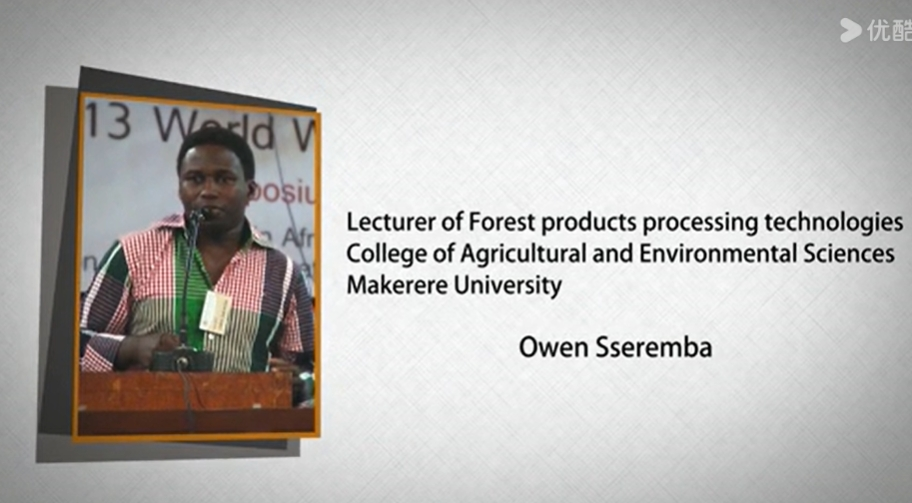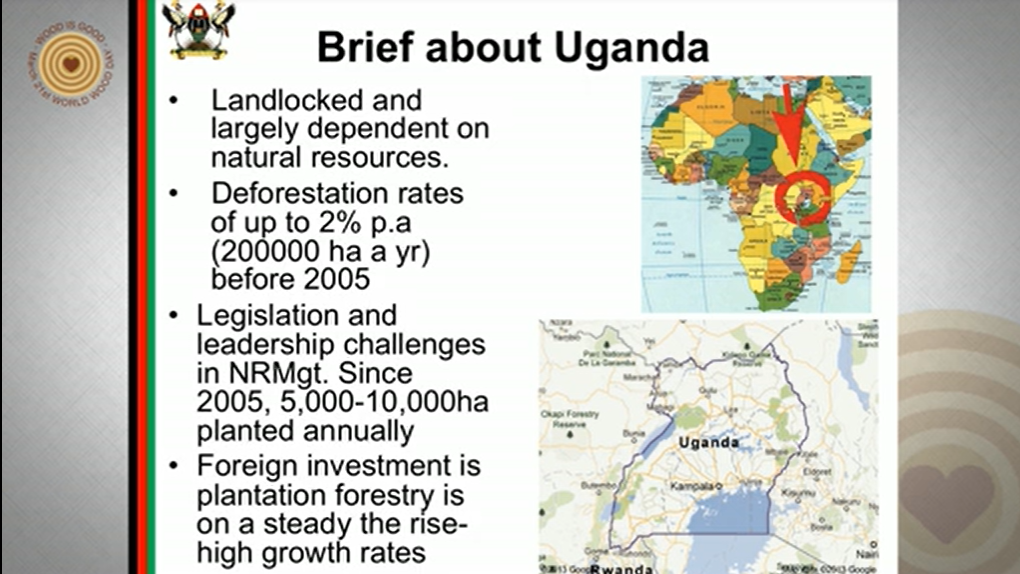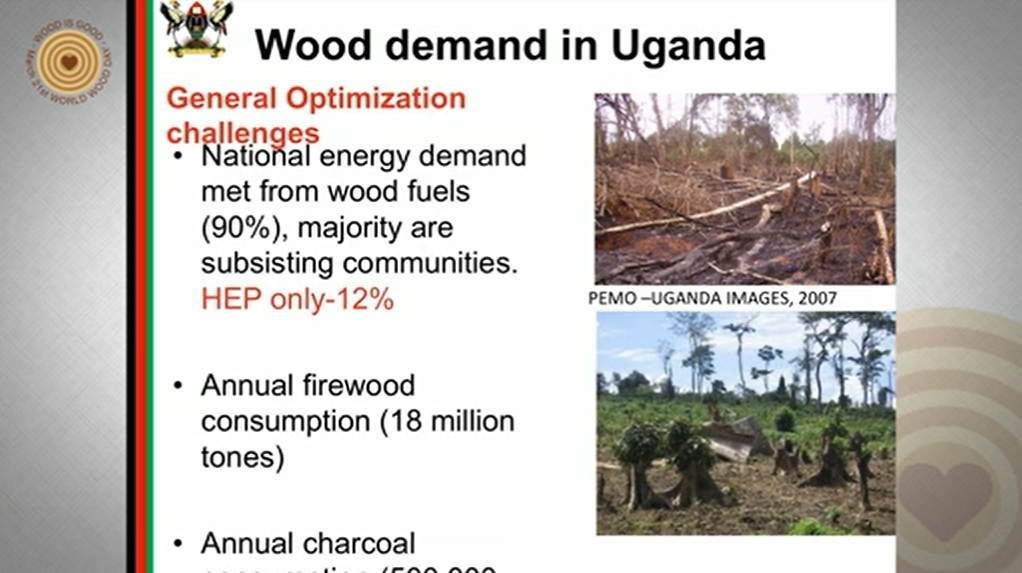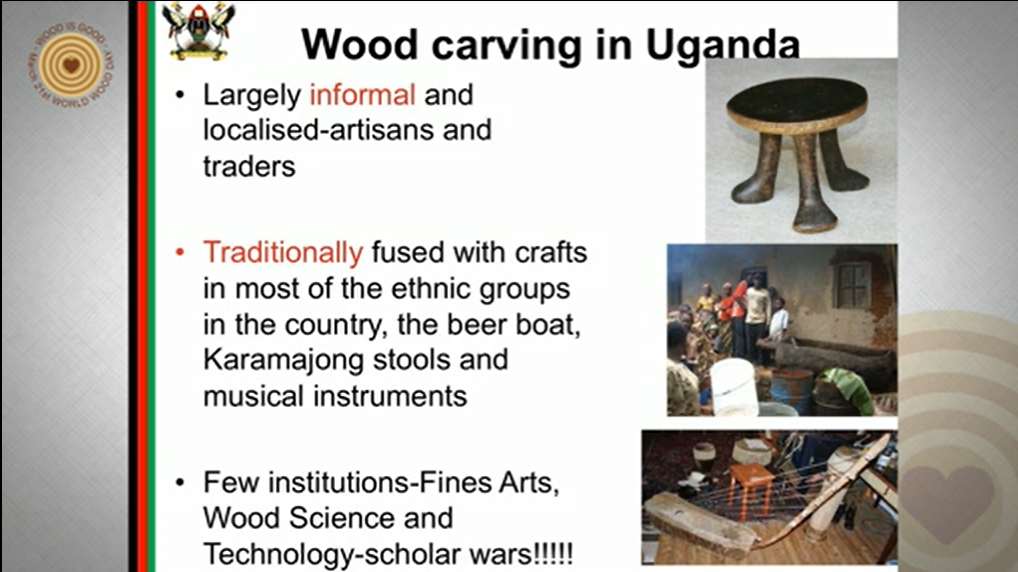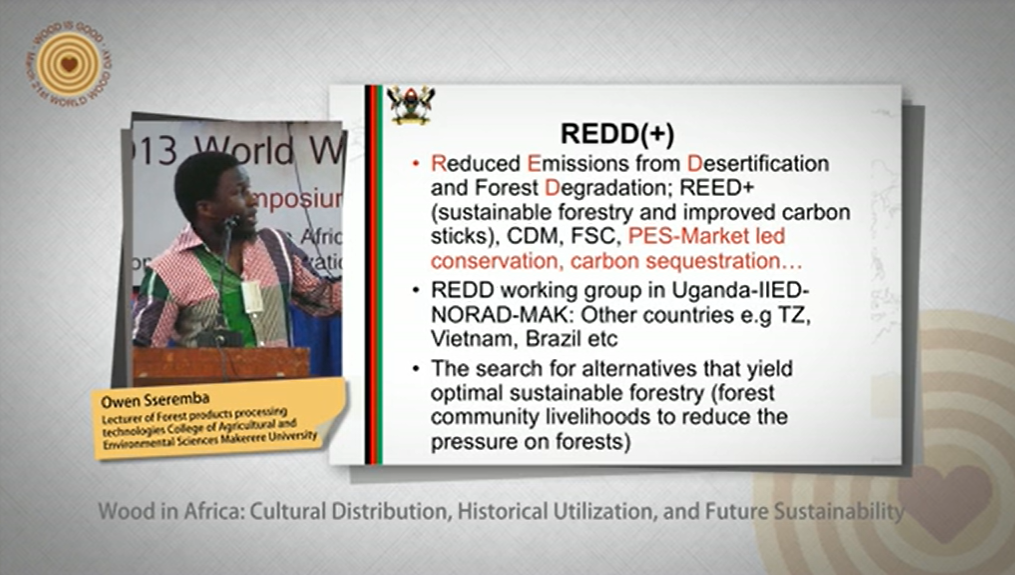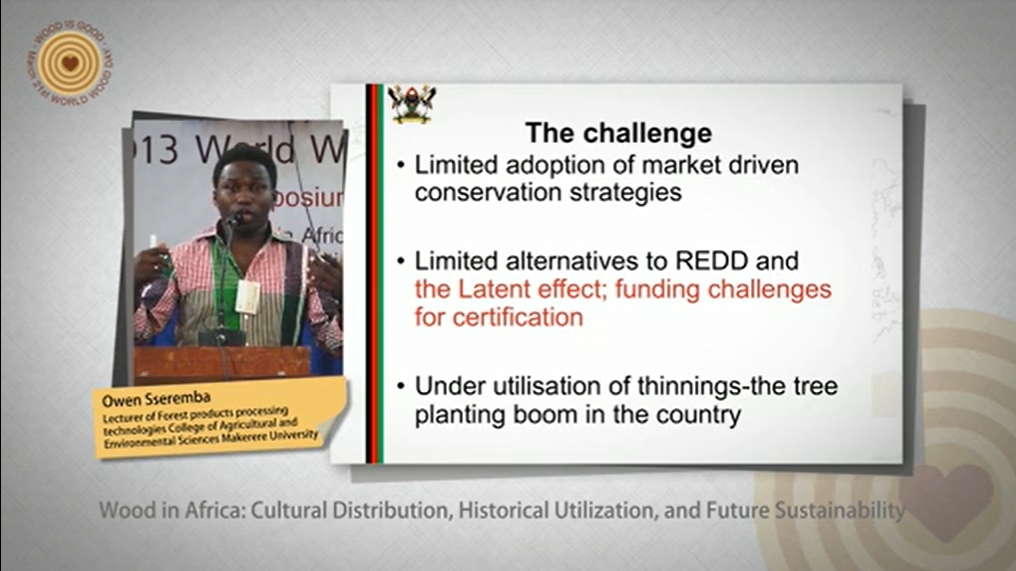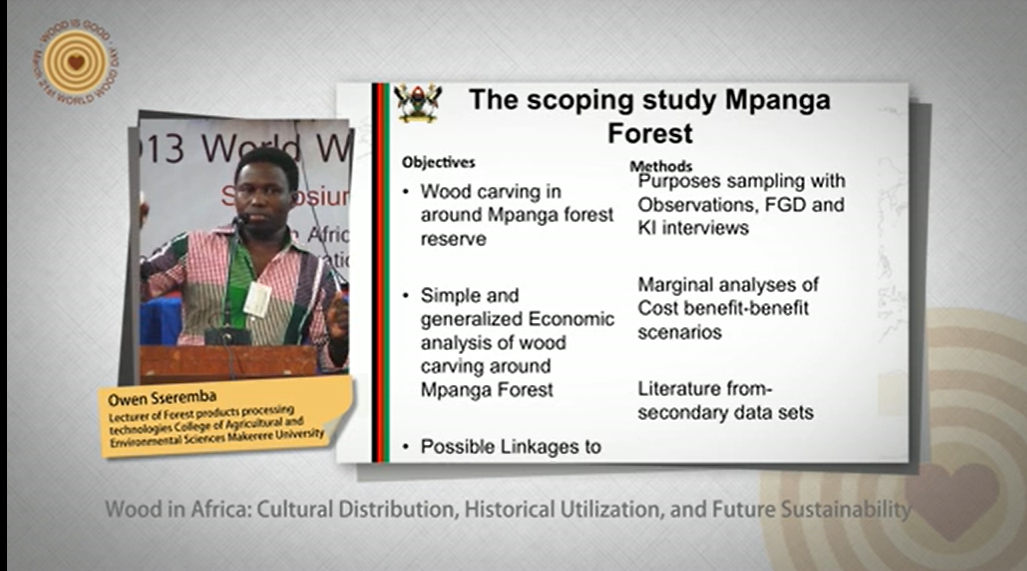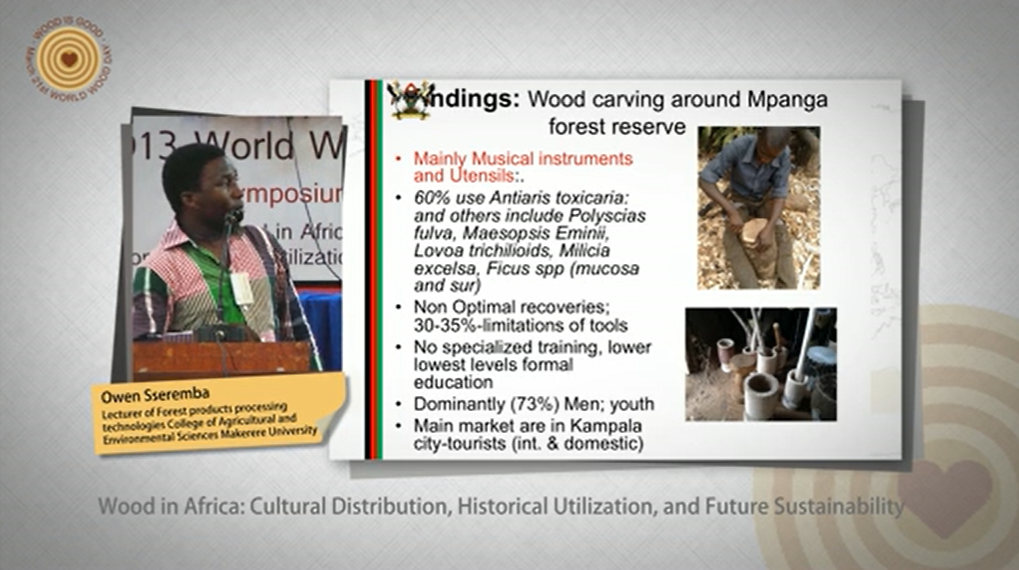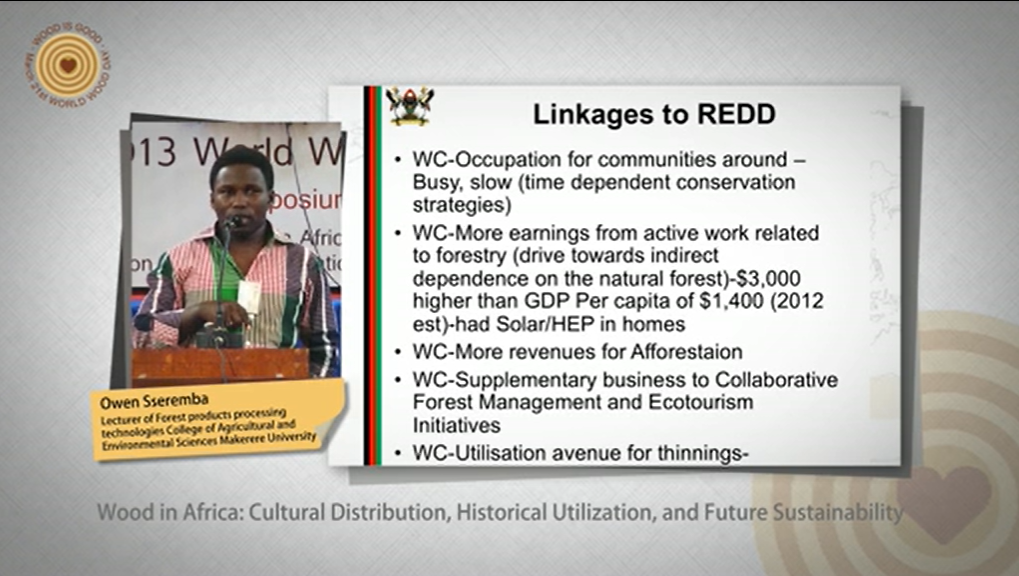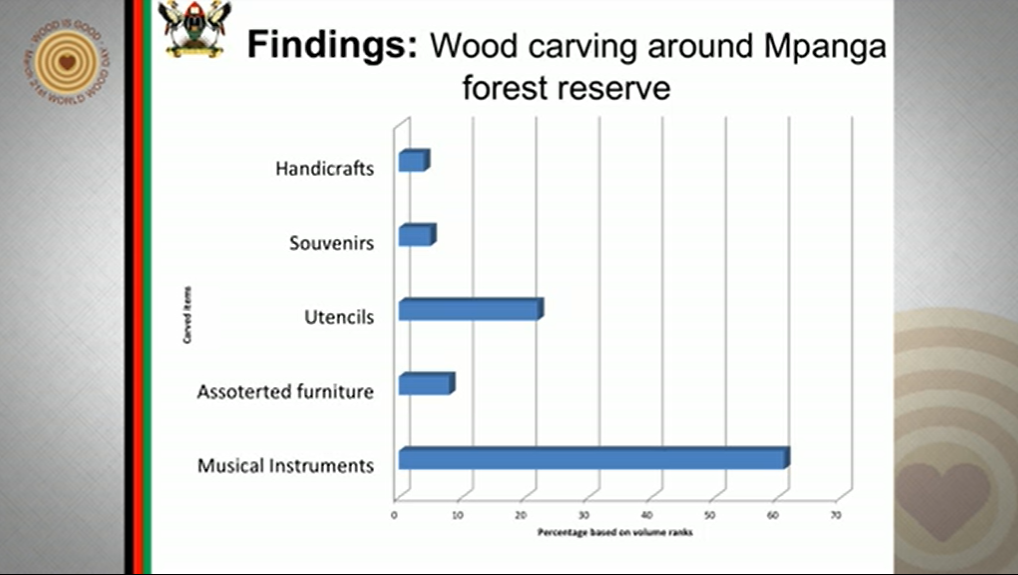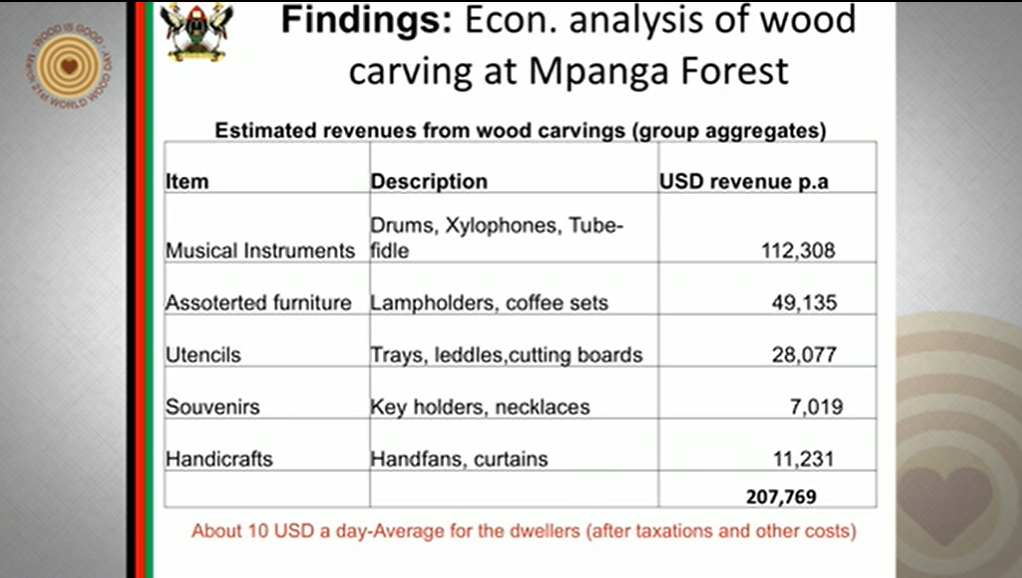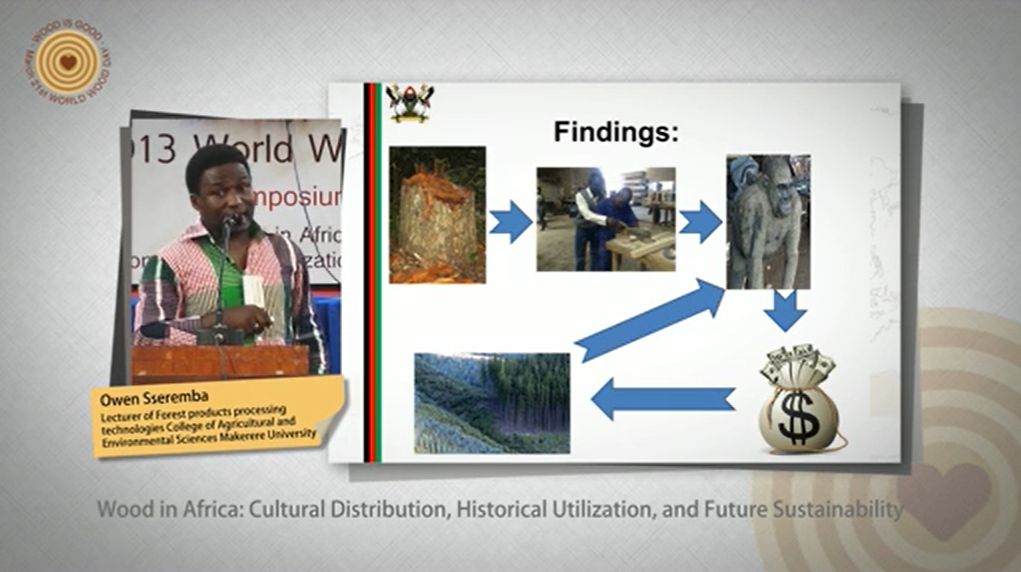会议名称:2013世界木材日研讨会(2013 World Wood Day Symposium)
会议时间:2013年3月19-20日
会议地点:Karimjee Hall, Dar es Salaam, Tanzania
报 告 人:Owen Sseremba
Lecturer of Forest products processing technologies
College of Agricultural and Environmental Sciences Makerere University
Abstract
Deforestation and forest degradation contribute about 20% of the global emissions that escalate climate change. Developing countries, such as Uganda, whose major source of livelihood especially in the rural lifestyles is majorly forestry deforestation, face a major challenge of finding alternative sustainable sources of livelihood so as to conserve the forest estate. Uganda is one of the developing countries partnering with developed countries to support its efforts of developing coping mechanisms and adaptations to climate change challenges through the Reduced Emissions from Deforestation and Degradation (REDD) and Payment for Ecosystem Services (PES) programs. Top on the agenda is conservation and development of forest carbon stocks in rural communities living around the forests through payments to communities for conserved forests and availing funds to invest in alternative livelihoods other than unsustainable forestry. There are challenges in obtaining such alternatives to people who practically survive on the forest and probably adopting other non-conventional forest processing avenues such as wood carving wood that would help achieve the REDD and PES schemes in the country. The limited consideration of wood carving as one of the alternatives of livelihood in the communities surrounding the forest is one of the major problems in promotion of REDD and PES initiatives in the country. The objectives of the study were to document the status of wood carving in Uganda and to discuss the opportunities of wood carving as part solution to challenges of Uganda as a developing nation regarding forest utilisation and conservation. Desk review of literature, focus group discussions, key informant interviews and in-depth case studies were used to obtain data for the study. The findings of the study showed that wood carving: is majorly informal an informal business in Uganda albeit a huge potential to transform the wood utilisation sector, is economically profitable to especially the low income communities around forests; contributes to the REDD and PES initiatives of adapting to climate change; is an appropriate solution to utilisation of the thinnings boom in Uganda and can solve the funding challenges of forestry conservation initiatives in the country. The study recommends numerous avenues for promotion of wood carving as a unique coping strategy to the implied challenges of climate change and sustainable forest resources utilisation in Uganda.
Speaker Profile
Owen Emmanuel Sseremba was born in Entebbe and attended school at St. Henry’s College Kitovu in Masaka District-Central Uganda. He then pursued a Bachelor of Science Degree of Wood Science and Technology and a Master of Science degree of Forestry of Makerere University. He is pursuing PhD studies at Makerere University with the purpose of obtaining age-specific utilization avenues of Ugandan grown timber. He was a production manager of the sole panel products factory in the country before joining the Makerere University as a Lecturer of Forest Products Processing and Engineering. He has published papers, books, policy briefs and held a number of consultancies with the Government of Uganda and its development partners. He is a charity philanthropist, a Rotarian, and a student member of the Society of Wood Scientists. He enjoys a technical approach to solution of society’s problems and is talented in sports, music and fine art.
Adapting to Climate Change: Wood Carving as a Coping Strategy to Achieve Conservation and Sustainable Forestry in Uganda
 8,148
8,148
责任编辑:iwcs25P/H


